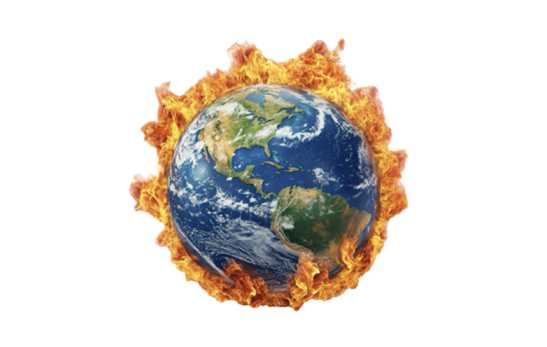53. Topic: An Environmental Concern
– Question 53: Describe an environmental concern that worries you.
– You should say:
– What is the environmental issue, and why is it a concern?
– How does it impact the planet and living creatures?
– What measures can individuals take to address it?
– What role should governments play in tackling this concern?
Model answer by Lifestyle Training Centre
One environmental concern that deeply troubles me is improper waste management, which is a widespread issue across both urban and rural areas. This problem arises when waste is not handled, treated, or disposed of properly, leading to a range of environmental and health hazards. From overflowing landfills to toxic emissions, the effects are alarming and far-reaching.
Improper waste management is a major concern because it directly contributes to pollution in various forms. Plastic waste, for instance, often ends up clogging rivers and oceans, threatening marine life. Additionally, when waste is burned in the open, it releases harmful gases like methane and carbon dioxide, which worsen air pollution and contribute to global warming. For humans and animals alike, exposure to toxic waste can lead to severe health issues, such as respiratory problems and diseases caused by contaminated water and soil.
The impact of this issue is devastating. Improperly managed waste not only degrades natural ecosystems but also affects biodiversity. Marine animals, for example, often mistake plastic for food, leading to choking or death. Furthermore, the accumulation of waste in landfills produces leachate, a toxic liquid that can seep into the ground and contaminate water supplies. Over time, this can severely affect agriculture and drinking water sources, creating a vicious cycle of environmental degradation.
To address this concern, individuals must take responsibility for their own waste. Segregating waste into biodegradable, recyclable, and non-recyclable categories is a small but impactful step. Additionally, reducing the use of single-use plastics, practising composting, and participating in community clean-up drives can collectively make a significant difference. As the saying goes, “every little helps,” and if everyone contributes, the results can be remarkable.
Governments and organisations also play a pivotal role in combating this issue. They need to enforce strict regulations on waste disposal and encourage sustainable practices such as recycling initiatives and waste-to-energy programmes. Investment in modern waste treatment plants and education campaigns about proper waste management can create lasting change. Policies like banning single-use plastics and incentivising companies to adopt eco-friendly packaging are steps in the right direction.
In conclusion, improper waste management is a pressing environmental concern that requires collective action. By taking proactive measures at the individual, community, and governmental levels, we can work towards a cleaner, healthier planet. After all, as the old saying goes, “We do not inherit the Earth from our ancestors; we borrow it from our children.”
List of vocabulary used:
- Improper waste management – Mishandling of waste, leading to environmental and health issues.
- Urban areas – Cities or towns with dense populations.
- Rural areas – Countryside or less densely populated regions.
- Environmental hazards – Risks or dangers that harm the natural environment.
- Health hazards – Risks or conditions that threaten human health.
- Overflowing landfills – Dump sites filled beyond their capacity.
- Toxic emissions – Harmful gases released into the air.
- Pollution – Contamination of the natural environment, making it harmful.
- Plastic waste – Discarded plastic materials.
- Marine life – Animals and plants that live in the sea.
- Methane – A greenhouse gas contributing to global warming.
- Carbon dioxide – A gas produced by burning organic materials, contributing to climate change.
- Air pollution – Contamination of the air by harmful substances.
- Global warming – The increase in Earth’s average temperature due to greenhouse gases.
- Toxic waste – Hazardous material harmful to health and the environment.
- Natural ecosystems – Communities of living organisms interacting with their environment.
- Biodiversity – Variety of plant and animal life in an ecosystem.
- Leachate – Contaminated liquid produced from waste decomposition in landfills.
- Contaminate – Pollute or make something impure.
- Responsibility – Obligation to take action or care for something.
- Segregating waste – Sorting waste into categories (biodegradable, recyclable, non-recyclable).
- Biodegradable – Materials that decompose naturally over time.
- Single-use plastics – Plastic products designed for one-time use.
- Composting – Recycling organic waste into fertiliser.
- Community clean-up drives – Collective efforts to clean public spaces.
- Every little helps – Small actions can collectively make a big impact.
- Strict regulations – Enforced rules and laws to ensure proper practices.
- Sustainable practices – Eco-friendly actions that preserve resources for future generations.
- Recycling initiatives – Programmes promoting the reuse of waste materials.
- Waste-to-energy programmes – Converting waste into usable energy.
- Waste treatment plants – Facilities designed to process and manage waste safely.
- Education campaigns – Efforts to inform and raise awareness.
- Eco-friendly packaging – Environmentally safe and sustainable product wrapping.
- Proactive measures – Steps taken in advance to prevent problems.
- Pressing concern – An urgent and important issue.
- Collective action – Efforts made by a group to address an issue.
- Cleaner, healthier planet – An environment free from pollution and hazards.
- We do not inherit the Earth from our ancestors; we borrow it from our children – A saying emphasising the responsibility to preserve the planet for future generations.
Idioms and Phrases
- Deeply troubles me – Affects me greatly or causes concern
- A widespread issue – A problem that is common or prevalent in many places
- This problem arises – This issue occurs or comes about
- Range of environmental and health hazards – A variety of dangers to the environment and health
- Overflowing landfills – Landfills that are so full that waste spills over
- Toxic emissions – Harmful gases released into the atmosphere
- The effects are alarming and far-reaching – The consequences are concerning and affect many areas
- Directly contributes to pollution – Directly causes pollution
- Clogging rivers and oceans – Blocking or obstructing rivers and oceans, especially with waste
- Threatening marine life – Endangering the life of creatures in the sea
- Burned in the open – Set on fire in an uncontrolled or open area
- Worsen air pollution – Make air pollution more severe
- Contribute to global warming – Add to the problem of climate change
- Exposure to toxic waste – Coming into contact with harmful waste
- Lead to severe health issues – Cause serious health problems
- Degrades natural ecosystems – Deteriorates or harms natural environments
- Affects biodiversity – Has a negative impact on the variety of life in an ecosystem
- Mistake plastic for food – Confuse plastic with something edible
- Choking or death – Suffocating or causing the death of marine animals
- Produces leachate – Generates a harmful liquid that seeps from landfills
- Seep into the ground – Slowly flow or leak into the soil
- Contaminate water supplies – Pollute or make water sources unsafe
- A vicious cycle of environmental degradation – A harmful, ongoing process of environmental damage
- Take responsibility for their own waste – Be accountable for one’s waste disposal
- Segregating waste – Separating waste into different categories
- A small but impactful step – A minor action with significant results
- Practising composting – Engaging in the process of recycling organic waste into compost
- Community clean-up drives – Organised efforts to clean up public spaces
- Every little helps – Small contributions can collectively make a big difference
- Play a pivotal role – Have an essential or crucial role
- Enforce strict regulations – Ensure the implementation of severe rules or laws
- Encourage sustainable practices – Promote environmentally friendly methods
- Waste-to-energy programmes – Systems that convert waste into energy
- Create lasting change – Produce long-term or permanent improvements
- Incentivising companies – Offering rewards or benefits to companies to encourage certain behaviours
- Steps in the right direction – Positive actions that move towards solving a problem
- Pressing environmental concern – An urgent environmental issue that needs attention
- Collective action – Efforts made by a group of people working together
- Proactive measures – Actions taken in advance to address a problem
- Work towards a cleaner, healthier planet – Strive for a better and more sustainable world
- We do not inherit the Earth from our ancestors; we borrow it from our children – A reminder to take care of the planet for future generations
IELTS Speaking Task Topics
Click on any topic to explore more!
Names

Learn about the importance of names and their cultural significance.
Study / Job

Discuss various aspects of studying and working in different fields.
Hometown

Explore the charm of your hometown and its unique features.
Accomodation

Understand various types of accommodation and living situations.
Weather

Learn about how weather influences daily life and activities.
Time

Discuss the concept of time, its importance, and time management.
Television

Talk about the role of television in modern entertainment.
Museum

Discuss the cultural importance of museums and historical exhibits.
Holidays

Explore the significance of holidays and different celebrations.
Films

Learn about the impact of films on culture and society.
Leisure Time

Discuss how leisure activities impact personal well-being.
Sport

Talk about the role of sports in health, entertainment, and culture.
Vegetables and Fruits

Discuss the health benefits and importance of fresh produce.
Maths

Explore the role of mathematics in various aspects of life.
Sky

Discuss the beauty and scientific significance of the sky.
Clothes&Fashion

Explore how clothing reflects culture and personal expression.
Weekend

Discuss the importance of weekends and ways people relax.
Reading

Learn about the importance of reading and various reading habits.
Sleep

Explore how sleep impacts physical and mental well-being.
Trees&Plants

Discuss the environmental and health benefits of plants.
Newspaper

Discuss the evolving role of newspapers in the digital age.
Texting

Explore the role of text messaging in modern communication.
Memorising

Learn techniques for improving memory and memorization.
Travelling

Discuss the importance and impact of traveling in modern society.
Communication

Explore the modes and significance of communicating well
Letter&Email

Explore the differences and significance of letters vs. emails.
Swimming

Discuss the benefits of swimming for health and fitness.
Snacks

Explore the role of snacks in daily nutrition and lifestyle.
Photography

Discuss photography’s cultural and artistic significance.
Help

Talk about the importance of offering and receiving help.
History

Discuss historical events and their impact on modern society.
Handwriting

Explore the significance of handwriting in education and culture.
Music

Learn about the influence of music on emotions and society.
Colours

Discuss how colours affect perception and mood.
Teachers

Explore the role of teachers in shaping students’ futures.
Being Alone

Talk about the experience and benefits of spending time alone.
Teamwork

Learn the importance of teamwork in professional and social contexts.
Countryside & City

Explore the charm and benefits of living in the countryside.
Social Media

Discuss the impact of social media on society and relationships.
Friends

Explore the importance of friendships in life.
Artificial Intelligence (AI)

Talk about the future of AI and its role in society.
Climate Change

Discuss the causes and consequences of climate change.
Transportation

Explore different modes of transportation in your area.
Sustainable Transportation

Explore ways to make transportation more environmentally friendly.
Space Exploration

Learn about the latest advancements in space exploration.
Shopping

Explore how shopping influences culture and the economy.
Modern Technology

Discuss how modern technology is reshaping society.
Technology

Learn about the role of technology in everyday life.
Sustainable Living

Explore ways to live sustainably for the future of the planet.
Globalisation

Learn about the effects of globalisation on society and economies.
Global Warming

Discuss the causes, effects, and solutions to global warming.
Gender Equality

Explore the importance of gender equality in modern society.
Health and Fitness

Discuss the importance of maintaining a healthy lifestyle.
Renewable Energy

Learn about renewable energy sources and their impact on the environment.
Cultural Traditions in Kerala

Explore the unique cultural traditions of Kerala, your hometown.
Cultural Traditions in Your Country

Learn about the cultural traditions in your country.
Education System

Discuss the education system in your country and its effectiveness.
Traditional Cuisine

Explore the significance of traditional cuisines in your culture.
Do you need printed IELTS/ OET practice material? Place your order today. Available now for just Rs: 1,100 (including shipping all across India) Contact us at our WhatsApp number: +91 9886926773 to place your order. (Free for LTC students)

We hope this information has been valuable to you. If so, please consider a monetary donation to Lifestyle Training Centre via UPI. Your support is greatly appreciated.

Would you like to undergo training for OET, PTE, IELTS, Duolingo, Phonetics, or Spoken English with us? Kindly contact us now!
📱 Call/WhatsApp/Text: +91 9886926773
📧 Email: [email protected]
Visit us in person by following the directions on Google Maps. We look forward to welcoming you to the Lifestyle Training Centre.
Follow Lifestyle Training Centre on social media:
Thank you very much!
